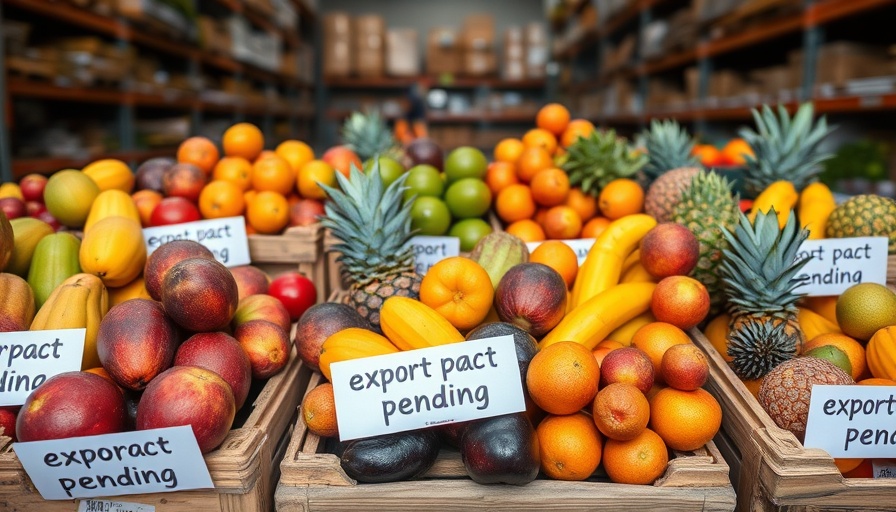
Understanding New Tariffs in 2025: Impacts and Implications
As we approach mid-2025, the South African government has introduced significant amendments to its tariff regulations under the Customs and Excise Act of 1964. These adjustments, informed by ongoing shifts in global trade practices, serve as a response to evolving economic challenges and international trade law compliance issues.
The recent announcement details a crucial provision regarding anti-dumping duties on new pneumatic tyres imported from the People’s Republic of China. With implications stretching across several substantial markets, this amendment aims to safeguard domestic manufacturing against the threat of undervalued imports circumventing duties through complex trade routes involving Cambodia, Thailand, and Vietnam.
The Importance of Anti-Dumping Measures
Anti-dumping duties have become an essential tool for protecting local industries from unfair pricing practices that can undermine economic stability. The imposition of these provisional payments underscores the government’s commitment to supporting domestic tyre manufacturers, who argue that without these protections, they would struggle to compete with cheaper imports that may not reflect true manufacturing costs.
This proactive stance taken by the Integrated Trade Administration Commission (ITAC) also signifies a broader trend within global trade policy, where countries are increasingly turning to such measures to secure their domestic markets. As globalisation continues to evolve, nations are compelled to reassess and realign their trade policies to maintain competitive advantages.
The Broader Context: AfCFTA's Role
The amendment to include The Gambia in the African Continental Free Trade Area (AfCFTA) Agreement exemplifies a strategic shift towards enhancing intra-African trade. By expanding the participant base, the AfCFTA aims to fortify economic ties and foster cooperation among African nations, ultimately leading to greater regional stability.
However, with the benefits of increased trade come challenges, particularly around tariffs and regulatory compliance. Countries must navigate the complexities of local and international standards while ensuring that protective measures are in place to defend national interests. The ongoing dialogues within the AfCFTA framework will likely contribute significantly to shaping tariff discussions in the coming years.
Future Predictions: Economic Ripple Effects
As South Africa implements these tariff amendments, we can anticipate several cascading effects across various sectors. Manufacturers and businesses must prepare for potential shifts in the supply chain dynamics, which could see increased costs for imported materials leading to inflationary pressures on end consumers.
The implementation of this policy is expected to stimulate local production, creating jobs and fostering innovation within the tyre manufacturing sector. Yet it also poses risks, especially if retaliatory measures are adopted by trading partners whose markets may be adversely affected. Keeping an eye on international reactions will be crucial for businesses and policymakers alike.
The Path Forward: Recommendations for Stakeholders
Stakeholders, including local manufacturers, importers, and policymakers, should proactively engage with these new tariff regulations. Awareness and understanding of the changes can aid in better business decision-making processes. Conducting a comprehensive analysis of market conditions and developing adaptive supply strategies will be key to thriving in this evolving landscape.
Moreover, fostering communication between government entities and businesses can facilitate smoother transitions and build trust among parties involved. Regular briefings and transparency regarding upcoming regulations will ensure that stakeholders remain informed and prepared.
Conclusion: The Need for Vigilance
In summary, the amendments to tariffs scheduled for mid-2025 are a reflection of the dynamic interplay between global trade and national interests. As South Africa adapts to these changes, it is imperative that all parties remain vigilant and engaged in discussions that will shape the future of trade and local economic health. This vital discourse can provide insights into the effectiveness of current policies and assist in strategizing for a resilient economic future.
 Add Row
Add Row  Add
Add 




Write A Comment